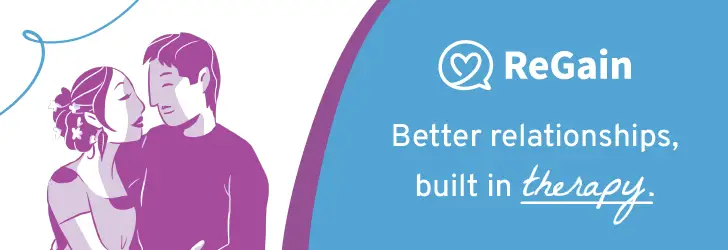As a BetterHelp affiliate, we receive compensation from BetterHelp if you purchase products or services through the links provided
Many philosophers, psychologists, and thinkers throughout history have pondered, “What is the opposite of love?” Some might say it is hate, while others argue for indifference. This article delves into understanding the various opposing forces of love to answer this age-old question.
Human emotions are complex and multifaceted. Love is considered one of the most powerful emotions, playing a significant role in relationships and shaping how we interact with others. Understanding what stands opposite to love can shed light on the complexities of human emotions and help us recognize the importance of love in our lives.
Regarding love and its opposite, it is essential to analyze phrases opposite to love, how love manifests through actions versus words, and the extreme opposite of love, such as love versus murder. By examining these ideas, we can better understand the true opposite of love and its impact on both individual and societal levels.
Key Takeaways
- The opposite of love varies with different perspectives, like hate or indifference.
- Considering related phrases, actions, and extremes can help identify love’s true counterforce.
- Analyzing opposites of love develops a deeper understanding of human emotions and their relationship roles.
 Understanding Love
Understanding Love
Affection Vs Indifference
Affection is the warm, caring, and positive feeling that someone has toward another person. It often involves a sense of admiration, respect, and deep attachment. In contrast, indifference means having no interest or concern for someone, which can be seen as the opposite of affection.
Love often begins with affection, as individuals feel drawn to each other and express their care and concern. However, when indifference replaces affection, the bond weakens, and love may start to fade.
Liking Vs Dislike
Liking is a positive feeling toward someone, which could be based on their personality, appearance, or shared interests. On the other hand, dislike is having a negative feeling or aversion to another person. These emotions can be seen as opposing forces in the context of love.
Liking someone can be the initial spark that leads to developing a deeper, more meaningful relationship. However, when our feelings shift from liking to disliking someone, it can result in conflicts and the decline of love between the two individuals.
Commitment as a Form of Love
Commitment plays a significant role in defining love. It involves the decision to maintain and invest in a relationship with another person through ups and downs. The presence of commitment can be a strong indicator of love, as it demonstrates a dedication to nurturing and developing a connection with the other person.
In conclusion, love is a complex and multifaceted emotion involving affection, liking, and commitment. Understanding these different aspects can help us recognize the true nature of love and how it can evolve or decline over time.
Understanding the Opposites of Love
 Love Vs Hate
Love Vs Hate
When discussing the opposite of love, hate is often the first emotion that comes to mind. Hate is intense dislike, hostility, or aversion towards someone or something. Love, on the other hand, is associated with feelings of affection, connection, and care. While love fosters understanding and acceptance, hate instills division and aggression. It is essential to recognize that although hate may seem like the immediate opposite of love, other emotions and states of being can also be considered contrasting to love.
Love Vs Indifference
Another potential opposite of love is indifference. Indifference signifies a lack of interest, concern, or feeling toward someone or something. In this case, the opposite of love is not a strong negative emotion like hate but rather an absence of any emotional attachment or concern. Love thrives on empathy, understanding, and a desire for closeness, while indifference isolates and separates individuals from one another.
Emotion Vs Intention
When evaluating the opposites of love, it’s crucial to differentiate between emotions and intentions. Love is an emotion that can be experienced and expressed, whereas intentions refer to the actions and decisions driven by that emotion. Therefore, while hate and indifference may be opposites of love as emotions, they also possess corresponding intentions. For example, hate-driven actions can be destructive and harmful, while indifference may lead to neglect or disengagement. In contrast, actions borne out of love are typically aimed at understanding, support, and connection. As such, considering emotions and intentions can offer a more comprehensive view of the varying opposites of love.
Phrases Opposite to Love
Truth Vs. Lie
Exploring the relationship between truth and lies is important when considering the opposite of love. In a loving relationship, there is a foundation of honesty and open communication. Honest communication fosters trust and strengthens the bond between individuals. However, lies can have the opposite effect. They create distrust and suspicion, ultimately weakening the connection between individuals. Telling the truth, even when difficult or uncomfortable, demonstrates genuine care and respect for the other person.
On the other hand, lies may have a short-term perceived benefit, such as avoiding conflict or emotional pain. But, they ultimately cause long-term damage to a relationship. By being dishonest, an individual places their needs and desires above those of the person they claim to care about. In doing so, they demonstrate a lack of love for the other person.
Enjoy Vs. Resentment
Another aspect to consider is the contrast between enjoyment and resentment. In a loving relationship, there is a mutual appreciation of each other’s company, shared experiences, and growth. Both individuals enjoy spending time together and building a shared life. However, resentment can arise when one feels wronged, mistreated, or neglected. Resentment is typically rooted in a lack of understanding, poor communication, and unmet needs.
To counteract the negative effects of resentment, both individuals must communicate openly about their feelings, needs, and expectations. Addressing resentment head-on can allow for constructive discussions and growth within the relationship. Avoiding or denying the presence of resentment may lead to further feelings of discontent, eventually pushing the relationship further from love.
In summary, phrases that reflect the opposites of love can be found in the contrast between truth and lies, enjoyment and resentment. These concepts highlight the importance of honesty, communication, and mutual appreciation to cultivate and maintain loving relationships.
Love in Relationships
Care Vs Spite
In relationships, love is often characterized by care towards one another. When two people genuinely love each other, they prioritize their needs, well-being, and happiness. This nurturing emotion translates into acts of kindness, consideration, and understanding.
On the contrary, spite manifests negative emotions, such as anger, jealousy, or resentment. Spite can undermine relationships and distance individuals from one another, causing harm instead of fostering closeness and support. It is important to be aware of these contrasting emotions in relationships as they play a critical role in the overall health and dynamics of the partnership.
| Love | Opposite of Love |
|---|---|
| Care | Spite |
| Prioritize needs/welfare | Focus on self-interests |
| Acts of kindness | Acts of harm |
| Support | Undermine |
Ties Vs Isolation
In loving relationships, strong ties are formed between individuals. These connections build trust, facilitate communication, and provide a sense of security and belonging. The emotional bonds formed in a loving relationship create a solid foundation for growth and personal development.
Isolation can lead to loneliness, disconnection, and a lack of emotional support in a relationship. When partners do not share a deep connection or engage in nurturing behaviors, isolation can set in and hinder the overall development of the relationship.
- Ties: Trust, Communication, Security, Emotional Support
- Isolation: Loneliness, Disconnection, Lack of Emotional Support
By understanding the role of love, care, and emotional ties in relationships, individuals can work towards fostering a healthy and supportive environment with their partners. Recognizing the importance of love and its positive impact on relationships is essential for their long-term success and stability.
Love In Action Vs Word
Work Vs Inaction
When it comes to displaying love, actions truly speak louder than words. A person who truly loves someone will put forth the necessary effort in their relationship, while those who only say they love may not be as committed. Work that exhibits love includes acts of service, spending quality time together, and consistently prioritizing the other person’s needs over one’s own. Inaction, on the other hand, often results in stagnation and decreased affection in the relationship.
‘Darling’ Vs ‘Enemy’
Another aspect of love lies in the language we use with those we care about. “darling” refers to a rhetorical expression of affection that can create a warm, loving atmosphere, whereas calling someone an “enemy” signifies an adversarial relationship. In the context of love, it is important to be mindful of the terms we use, as they have the power to either cultivate or undermine our connections with others.
Love, therefore, is not just a phrase but also observable through the combination of work and action in relationships. That said, the opposite of love can also be manifested through inaction and the language used when speaking to others. One can foster true and enduring love by exhibiting consistent effort in relationships and using kind, affectionate terms.
The Extreme Opposite: Love Vs Murder
Love and murder are two concepts at opposite ends of the spectrum. Love is a powerful, positive emotion that fosters deep connections and promotes the well-being of individuals and communities. On the other hand, murder is a heinous act of violence that destroys lives and has severe consequences for society.
The stark contrast between love and murder becomes apparent when analyzing their psychological ramifications. Love often evokes happiness, security, and selflessness as individuals prioritize their loved one’s needs above their own. Conversely, murder involves extreme selfishness, causing harm and suffering and tearing apart the fabric that bonds people together.
In examining the societal effects, love has the power to build and strengthen communities, encouraging cooperation, empathy, and trust among its members. People who feel loved and supported are more likely to contribute positively to their surroundings. In stark contrast, murder disrupts the stability of communities by instilling fear, mistrust, and grief. This heightened tension can lead to further violence and erode social cohesion.
When comparing the legal and ethical implications, love is universally acknowledged as a core virtue, celebrated and admired by various cultures and religions worldwide. Murder, however, is universally condemned, with severe legal repercussions. It is considered one of the most grievous crimes, violating a sacred moral code.
Finally, it is important to note that while love can offer a sense of purpose and belonging, murder often results in isolation and ostracism. Those who commit such acts face legal consequences and deep social stigma, further emphasizing the polar opposite nature of love and murder.
In summary, love and murder represent two extremes of human emotion and action. By understanding this opposition, we can appreciate the profound impact that both can have on individuals and communities, ultimately striving for love’s nurturing presence while condemning and preventing murder’s destructive force.
 Conclusion
Conclusion
Choosing Love Over Opposites
When discussing the opposite of love, it is crucial to examine the role of commitment in our understanding of love. Love may be seen as a deep commitment and connection to another person. Therefore, a lack of commitment or detachment can be considered its opposite. In this context, love encompasses romantic relationships, friendships, familial bonds, and even the connections we share with our communities.
Help is another aspect that plays a vital role in love. Love often motivates us to support and assist others through emotional encouragement or practical aid. Consequently, withholding help or rejecting the needs of others can potentially signify the opposite of love. It is essential to recognize that choosing to offer help fosters a sense of care and empathy, traits inextricably linked to love.
However, it is crucial to acknowledge that the idea of “nothing” also represents an opposing force against love. In this case, “nothing” refers to a complete absence of emotion or thought. It can be understood as a state of indifference or apathy, which starkly contrasts the warmth and depth of love. Such indifference may also manifest in a lack of commitment or unwillingness to help others.
In conclusion, love is a multifaceted experience encompassing commitment, help, and strong emotional connections. Any factor that disrupts these components – detachment, withholding assistance, or overall indifference – may be considered the opposite of love. Adopting a confident, knowledgeable, neutral, and clear perspective, individuals must recognize and prioritize love over its opposites, fostering meaningful connections and supportive environments.
Frequently Asked Questions

What is the opposite of love in psychology?
In psychology, the opposite of love is often considered to be hate. Both emotions involve strong feelings, but while love is associated with positive feelings and attraction, hate is associated with negative feelings and repulsion. However, some psychologists argue that indifference, the lack of emotional attachment, could be a better opposite to love.
Is fear the opposite of love?
Fear is not usually considered the opposite of love. While love and fear can both evoke strong emotions, they are not directly opposed to one another. Love involves feelings of warmth, affection, and attachment, whereas fear is a response to a perceived threat or danger. They are separate emotions experienced under different circumstances.
Does the Bible say fear is the opposite of love?
The Bible does not explicitly state that fear is the opposite of love. However, 1 John 4:18, says, “There is no fear in love. But perfect love drives out fear because fear involves punishment.” This verse suggests that love and fear are incompatible, but it does not necessarily imply that they are opposites.
What is the opposite emotion of love?
The opposite emotion of love can be considered hate or indifference, depending on the context. Hate involves strong negative feelings and repulsion, while indifference is a lack of emotional connection or concern. Both emotions can be seen as opposites of love, as they represent the absence of the warmth, affection, and attraction associated with love.
Is indifference the opposite of love?
Indifference can be considered the opposite of love, as it represents a lack of emotional attachment or concern. In contrast, love involves feelings of affection, attachment, and caring. While hate is often seen as the opposite of love, indifference can also be considered as an opposing emotion due to its neutral and detached nature.
What is the opposite of love in relationships?
In relationships, the opposite of love can manifest as indifference or contempt. Indifference reflects a lack of emotional connection and concern for one’s partner, while contempt involves negative attitudes and disdain toward them. Indifference and contempt can erode the foundation of a loving relationship and create emotional distance between partners.
Jacob Maslow: Delving Deep into Emotions and Advocating for Strength
Behind the insightful article “What is the Opposite of Love: Exploring Contrasting Emotions” is Jacob Maslow, a writer with an intimate grasp of life’s complexities. Guided by Lexapro for mental well-being and enriched by extensive therapy, Jacob’s journey has been marked by personal battles against an ex-partner’s extreme narcissism, which led to the heart-wrenching alienation from his children. Despite the ongoing court tussles, Jacob finds solace in long daily walks, using them as moments of reflection and rejuvenation. Jacob aspires to provide guidance and hope for those in similar situations through his writings on mental health and narcissism. His message is unwavering: overcoming mental health hurdles is attainable for everyone. Furthermore, Jacob’s dedicated legal portal stands as a resource and support platform for those ensnared in the complexities of non-compliant spouses and custody issues.
- 3 Ways Wearing a Hat Can Help Lower Your Stress Levels - April 19, 2025
- Breaking the Silence: Why Men’s Mental Health Matters More Than Ever - April 15, 2025
- How to Transform a Home’s Patio Space into a Relaxing Space - March 23, 2025
This site contains affiliate links to products. We will receive a commission for purchases made through these links.


 Understanding Love
Understanding Love Love Vs Hate
Love Vs Hate Conclusion
Conclusion

